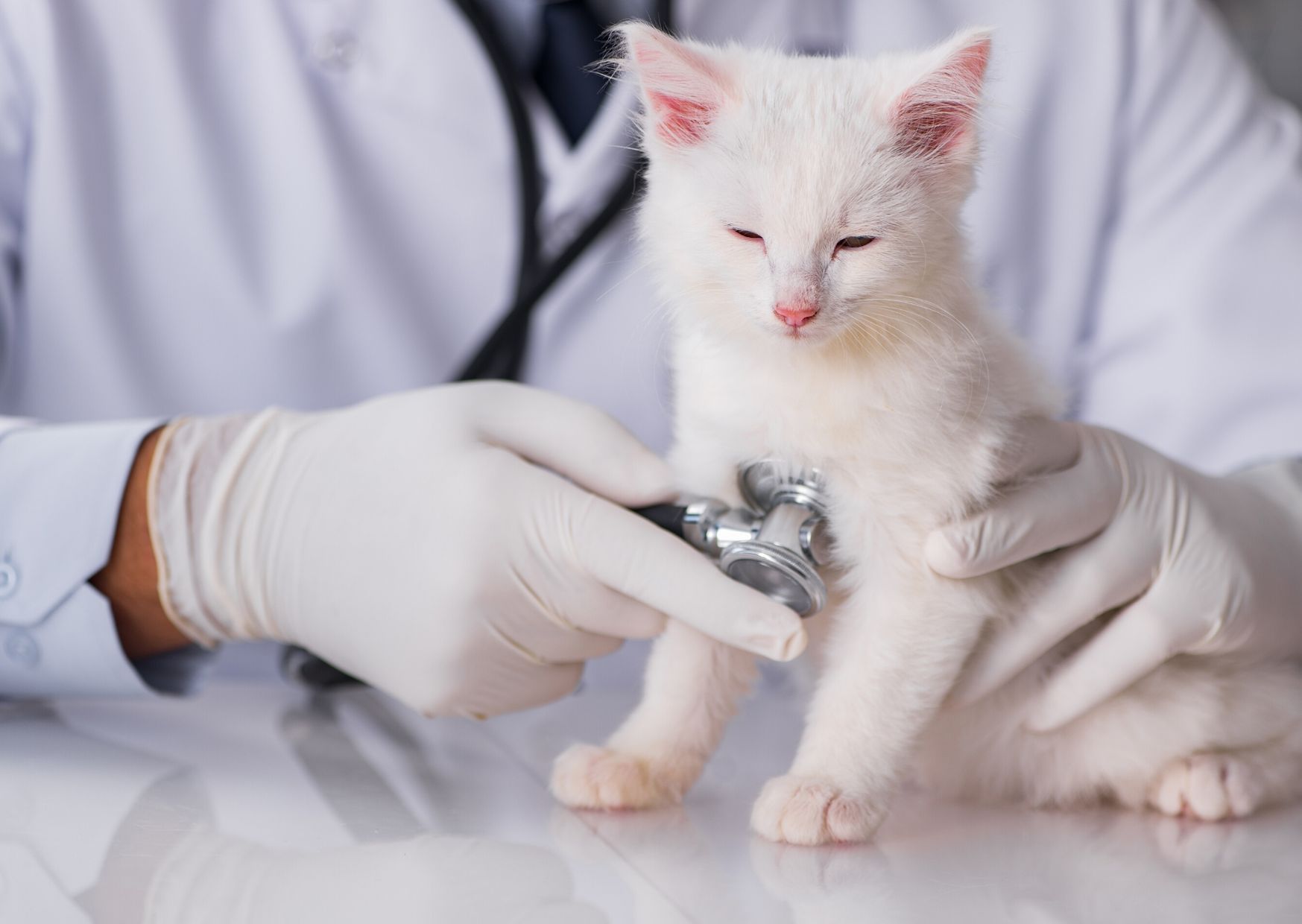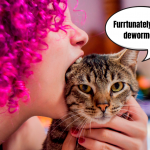“Let’s share the experience” is not only the title of our action two weeks ago, in which we asked you to send us your experiences or knowledge about the need for vet care during the home quarantine. Sharing your experience is also what everyone is currently doing at home, whether talking online or on the phone with friends, family or neighbors, or sharing their knowledge, stories or skills in social media or other online channels. Our joint support in this difficult time of the coronavirus pandemic and the need to stay at home is what allows us to simply not go crazy and get important information to take care of ourselves, our loved ones and our animals safely.
You have generously endowed us with your experience and knowledge, hence this valuable entry and at the same time such our common knowledge in a nutshell – how to behave in the present time as a Carer of the hairy (or not – look at the wonderful Sphinxes:) Companion. What to do with your pet during the coronavirus epidemic? How to protect yourself and your pet? How to behave during the visit to the vet? What are the guidelines of veterinary clinics for our visits?
Can a dog and a cat infect me with coronavirus?
Experts calm down – animals do not transmit this dangerous disease. According to the World Organisation for Animal Health (OIE) and WHO, the virus spreads through human contact. There is no evidence that domestic and farm animals can be carriers of the virus. The OIE ensures that they are not known for any reliable cases of infected dogs and cats that show any symptoms of the disease.
Centers for Disease Control and Prevention in the USA also confirms this information: https://www.cdc.gov/coronavirus/2019-ncov/faq.html#animals.
However, it is recommended that a person infected with the coronavirus, or waiting for a test result, should limit their contact with their pet. When caring for animals, remember about basic hygiene rules. Wash your hands before and after touching animals, their food or toys. Avoid kissing them, being licked by them, or sharing human food with them (so we know it’s almost impossible!) We should also limit long walks with dogs, especially in urban areas. Let’s make short walks better, and as a reward for the animal, let’s limit the hashing outside, let’s give it more fun and scratching at home together.
If we take care of an animal of the Guardian who is ill, let us use gloves and masks and wash our hands often. If the dog or cat itself couldn’t get infected, there may be drops of virus-containing secretions on its coat (e.g. their Keeper may have sneezed in their company, kissed them, etc.).
Hygiene rules for Animal Carers.
Although it is currently reported that pets do not carry coronavirus, it is advisable to follow good hygiene habits. Dear Animal Carers – let’s remember about the following actions:
- washing hands before contact with the animal and also after it;
- o hygiene of hands also in case of contact with food, bowls, other accessories or animal faeces;
- cleaning thoroughly after the animals, as well as disinfecting places where they sleep or eat;
- reducing the habit of touching eyes, mouth and nose, especially after contact with animals;
- limiting walks;
- not visiting dog parks;
- limiting the exit of outgoing cats, because you never know where our World Circle was and with whom it had contact.
All the conscious Animal Carers, and the organisations or people who care for them, appeal for reason and not to abandon pets or give them to shelters, under which we – the cats – sign with all our paws! Animals are not vectors that carry the virus, and their devotion is an unimaginable tragedy and stress for them.
What should we do with the animal during the house quarantine?
The Chief Veterinary Inspectorate advises you to proceed as if you were absent for a long time and to take advantage of the help of your neighbours and loved ones. It is worthwhile to plan your pet’s care when you are healthy. It is known that nobody assumes that he will be infected with COVID-19 virus, but it is good to think ahead – what if this happens and I can’t leave home? Who will be taking my dog out and bringing food for my cat?
Let’s also think and help older people who are at risk and often live with a dog or cat under one roof. If you need to go out for a walk with a four-legged dog, let’s pick up the dog from under the door, take it out and give it to the Carer at the door, keeping a safe distance. Let’s ask if the dog has enough food, if there is no need to buy food or gravel. These are small gestures, and they mean a lot. You can look for such support on animal lovers’ groups and on Facebook and you can find out who in our immediate surroundings needs such help.
What if my animal is sick and I have to go to the vet?
If you are not sick or in quarantine, call your vet to make an appointment – the phone is now the first thing you should do. If you have a COVID-19 or other infectious disease, stay at home and limit contact with people. Such things as:
- annual vaccination (not applicable to the first vaccinations in puppies and kittens),
- deworming,
- planned surgery (if its postponement does not endanger the life and health of the animal),
- buying supplements and care products,
- check-ups,
should wait. Only go to the vet if there is an immediate threat to the health or life of the animal or if there are any disturbing symptoms. First make sure, for the common good, that you do not risk transferring COVID-19 to other people.
Your fabCats stories
We have received many tips from you on how to act when there is no choice and you have to go to the vet. Most of you are very agreeable and, commendably, well equipped with proven knowledge. That’s why we have gathered your advice and information from veterinary clinics and gathered it into these few most important points:
- Before you go to the doctor, make a phone call and let him know about your pet’s condition – agree with the vet whether a visit is necessary and what to do next;
- if you need to go to the vet – call first, make a convenient appointment, an hour so you won’t wait, and if your pet’s condition is serious, also call first and inform him about the urgent visit to the clinic so that his staff knows they may have a patient in an emergency condition out of order;
- try to avoid public transport, preferably in your own car, and if you are not able to do so, ask a relative or friend to take your pet to the vet, especially if you are in quarantine;
- come alone with your pet – one Guardian per visit;
- if your pet is permanently taking veterinary preparations, the clinic can send them to you by courier, without a visit;
- the responsible veterinarian arranges for your patients at a longer interval to avoid queues;
- if possible and available, you can use a home visit – surely everything must be arranged in advance by phone or email with the clinic or vet;
- keep a distance from other patients and, if possible, with medical staff, for about 2 m, wear a mask and gloves for your own and other safety, disinfect hands at the entrance and exit from the vet;
- if the weather allows, wait outside with your pet – especially if the clinic has a small waiting room – the fresh air will certainly do you and the little patient good;
- when going on a visit, choose a practice that takes precautions (liquid to disinfect at the entrance, keeping an appropriate distance between clients, arranging them at appropriate intervals, disinfecting the practices and the places and objects where both staff and clients are staying and touching;
- prepare for the visit so that the number of such visits is kept to a minimum (e.g., ask during a phone call if your pet is to be on an empty stomach, if you need urine or faeces samples that you can take care of before the visit – not to go again),
- If your pet is in a hospital ward, call first and ask if you can visit him, because we know that there are clinics with such wards that have suspended such a possibility and the contact is only by phone and you can get a picture of your pet by MMS;
Many of us live with animals that need regular vet care, due to diseases that unfortunately accompany our animals as well as people. Apart from emergencies where something bad is happening to our animals and a specialist’s help is needed, Guardians who have chronically ill pets are in an equally difficult situation. We can imagine how difficult this time is for all these people – that’s why the idea of gathering knowledge about visits to the vet at the time of the ban on leaving the house was born. Izabela has a kitten that needs constant control and she wrote us this message:
Good morning,
as far as the vet’s care is concerned, my cat is in constant contact with the doctor because she has a very low immunity, so we’re up to date. You can’t get to the doctor from the so-called street right now. The client has to call the clinic and ask for an appointment – she receives the date and time, the animals are handled every 30 minutes according to the recommendation of the Ministry. In exceptional and urgent circumstances, the veterinary clinic, as far as possible, serves clients with illnesses that cannot wait. We have a waiting room where one person spends time with a pet, and if someone arrives earlier, they must wait outside.
And this is a fragment of a message we got from Angelika describing her experiences after her visit to the vet:
1.”I was three weeks ago on a check-up visit to a cat’s ophthalmologist. The day before, during the confirmation of the visit, the lady told me what restrictions they introduced in relation to the virus:
2. When I go to the clinic, I’m not supposed to go but make a phone call. If the main phone would be busy, I was supposed to call the second one (sent the day before by text message).
3. The person going out to get the cat had gloves, an apron and a mask. She took the cat along with her health book.
4. After the visit the doctor will call you and give you further information, ask questions, etc. At that time I was to sit in the car/outside.
5. Payment is by card only, the terminal is always covered with a disposable bag for safety reasons.
6. Full professor. ‘’ (…)
The story below shows that it is worthwhile to have such an ABC of cat health, the basics of cat care, in one finger. We know this from our experiences with our cats Luis and Figo during their diseases, when we had to learn, among other things: administering subcutaneous drip, giving medication, doing subcutaneous injections and many other activities, thanks to which we managed without such frequent visits, to which we would have to expose our cats if we could not do it ourselves. For example, it’s a good idea to know what to do when your cat has diarrhoea or constipation, when her eyes are tearing, when she has swelling or swelling after a bite, what to do for scratches, or how to check if your cat is dehydrated. We got this message from @ladymargaritha:
“Hello! In response to your inquiry, I would like to write that in crisis situations such as the present one, or on holidays when there are no open clinics, we deal with most small problems ourselves. Since I have been running a temporary home for abandoned animals for years, I can choose from many situations myself (my “temporary” people taught me that). I have the most important kitten “first-aid kitten” and I reach for it if necessary. Moreover, our vet is on the phone 24 hours a day, so we are also in touch with him. Of course, if the situation would require an urgent visit, I cannot imagine not to use it. Then you should be careful not to get infected, but to help the animal. I am still waiting for the time when it will be an emergency room for animals. Greetings! :)”
As you can see, the ground is to keep the peace of mind, dear darling! Let’s remember the simple rules:
- let’s not panic;
- let’s remember the basic rules of hygiene;
- plan the care of our animal in advance;
- let’s take an interest in older and lonely animals;
- for urgent matters, contact the vet by phone (by e-mail, text message, etc.).
We wish you dear darling fabCats a lot of perseverance and health for the days to come. Take care of yourself, your loved ones and your pets – remember that in such difficult moments supporting each other and being together even “at a distance” is now a valuable thing. On the other hand, being with our animals, stroking them, playing and hugging together is a great support for our psyche and well-being. Let us draw strength from them and let them help us by giving them more and more access to our knees. To quote American journalist and writer John Grogan: “Life is so short, and our pets spend most of their time waiting for us to come home.” Now is a good time to repay them for those hours spent without us. Dear animals, as always, we can count on you!
And you Dear Cats, remember – WE ARE TOGETHER!
If you need support, have any questions or want to share your story and experiences – we are always looking forward to receiving your emails, comments and messages.




